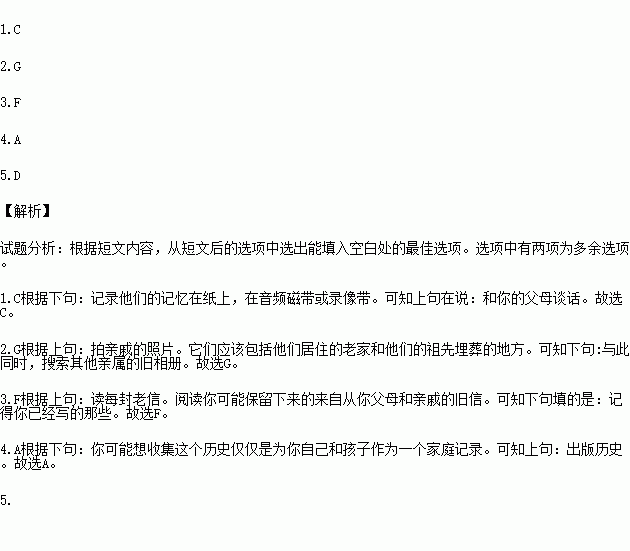题目内容
根据短文内容,从短文后的选项中选出能填入空白处的最佳选项。选项中有两项为多余选项。
When you begin to research your family history, you’ll get to know your parents and grandparents in a different way. You’ll see them through their memories of others. Here are some tips on how to write your family history:
1. Record their memories on paper,on audio cassette or videotape.
Take photos of relatives. They should include the old homes where they lived and the places where ancestors are buried. 2.
Read every old letter. Go through any old letter you might have saved from your parents and relatives. 3. These will give you insight into common everyday events that almost everyone has forgotten.
4. You may want to collect this history only as a family record for yourself and your children. Or you might want to have it printed in booklet form for family and any others who are interested in what your family has done. Nowadays,with desktop publishing programs,you can even publish the family history yourself,without having to take it to a printer.
Keep memories alive. Family histories are fascinating. 5. There are always some people who neglected to write down the tales of the past and record the family stories. If you don’t do this now,some day you’ll say,“I wish I’d written all that information down for my children and future generations. ”
A. Publish a history.
B. Visit other relatives.
C. Talk with your parents.
D. Don’t let yours be forgotten.
E. Write down your inner feeling.
F. In addition,remember those you’ve written them.
G. Meanwhile,search old photo albums of other relatives.

